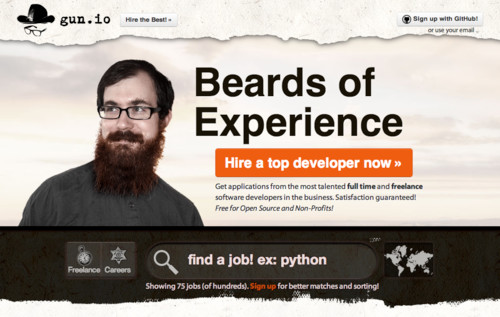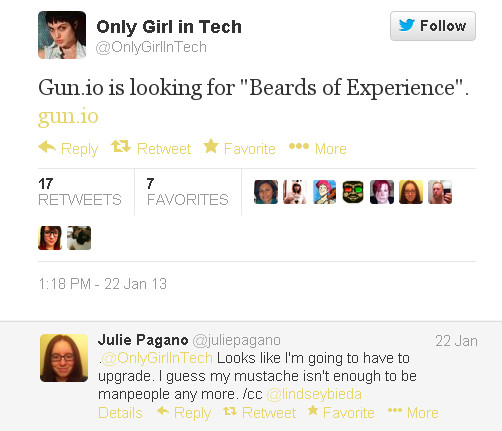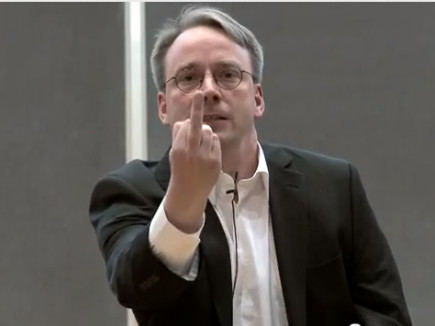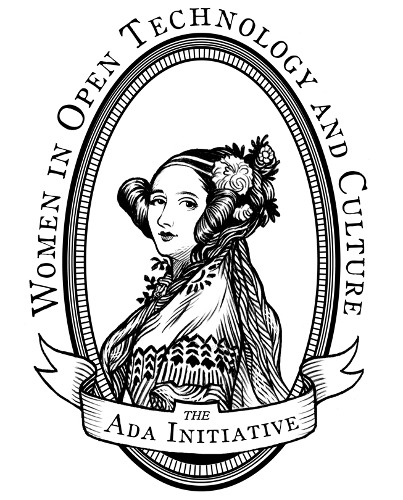Free as in Sexist? The Gendergap in Free Culture
Joseph Reagle
open + free + geek
<img alt=“Nuvola emoticon - happy” src=“http://upload.wikimedia.org/wikipedia/commons/thumb/4/42/Nuvola_emoticon_-_happy.svg/200px-Nuvola_emoticon_-_happy.svg.png”“/>
open + free + geek
Terms
Free Software
Code is copyable, modifiable, and free to share.
Open Source
Development is open, decentralized, and collaborative.
Libre
Highlighting “free as in freedom” not as in freeware, gratis, or “free as in beer.”
FLOSS/FOSS
Free culture
Software, prose, or media that “can be freely studied, applied, copied and/or modified, by anyone, for any purpose.”
Geeks
A geek has a passionate enthusiasm.
Joys of free culture
Good “stuff”
- Linux and Apache
- the Web
- Firefox, Safari, and Chrome
- Wikipedia
Good community
- open and accessible
- meritocratic
- free (to “fork”)
- fun / geeky
Sorrows of free culture
The gap
Women occupy 27% of computing-related positions.
In FLOSS, women are 1.1%.
At Wikipedia, women are ~9%.
Androcentrism
Assuming a male audience and dude humor.
(Not the end of the world, but not helping.)
For example …
e.g., Shuttleworth’s girls
A release is an amazing thing; I’m not talking about the happy ending…
Your printer, and your mom’s printer, and your grandma’s printer…
We’ll have less trouble explaining to girls what we actually do. (Shuttleworth in Schroder (2009))
e.g., Stallman’s virgins
And we also have the cult of the virgin of emacs. The virgin of emacs is any female who has not yet learned how to use emacs. And in the church of emacs we believe that taking her emacs virginity away is a blessed act. (Garrett (2009))
Sexism
Blah blah blah. This kind of whiny bullshit about unimportant details is exactly why women should be left out in the cold.
Misogyny
I pray you find your way into a feminist unfriendly country one day. God willing, you will die. Happily the feminist-unfriendly countries are immigrating to you. Remember the Netherlands? Feminists die there.
Why?
“Free as in freedom” = “Free as in Sexist”?
- geek identity
- openness
- freedom
1
On Being a Geek
The geek stereotype
- young white male
- obsessed
- argumentative
Comic book guy
Neckbeards
2. (n) Derogatory term for slovenly nerdy people who have no sense of hygiene or grooming. Often related to hobbies such as card gaming, video gaming, anime, et. al. (parttimehanyou (2005))


Alienation
Women express:
- “computational reticence” to machine intimacy and competition/sports/violence (Turkle (1986))
- don’t want to be “key-pressers” who only talk about computers (RasmussenHapnes (1991))
- that CS culture is “insular, isolating, and ’out of balance” (2/3 female; 1/3 male) (MargolisFisher (2002), “Unlocking the clubhouse”)
Ambient alienation
when an environment stereotypically associated with computer science—containing video games, StarTrek memorabilia, and the like—was made salient, women were consistently less interested in joining the domain than men. (CheryanEtal (2009))
Linux is harsh
Linux development is “competitive and fierce.” At best you get “status” and more often “a scathing flame.”
Since women are socialized to not be competitive and avoid conflict, and since they have low self-confidence to begin with, Linux and open source in general are even more difficult than most areas… (Aurora (2002))

Wikipedia is “fighty”
Women are not less knowledgeable. They are just less interested in sparring with other anonymous experts to prove themselves. (Passi (2009))
Simpsons redux
2
Openness
“Structurelessness”
‘Structurelessness’ is organisationally impossible. We cannot decide whether to have a structured or structureless group; only whether or not to have a formally structured one. (Freeman 1970)
Bad apples
If your group has nine helpful and polite members, and one rude, sexist, loud member, most women are going to continue to stay away because of that one member. I realize that this isn’t fair to the other people in the group, but that’s reality. (Aurora (2002))
Poison people
One ‘brilliant’ but obnoxious person will chase any number of good people away … [And] some never even show up in the first place because they see ToxicPerson and go looking for a healthier project to support. (Schroder (2009))
Anonymous cowards
Look at me! I’m an attention whore! Sympathise with me! WAH.
What a tantrum! Time of the month?
Icky
Women get targeted in special and icky ways just for being women. (Schroder (2009))
Freeman redux
‘Structurelessness’ is organisationally impossible. We cannot decide whether to have a structured or structureless group; only whether or not to have a formally structured one. (Freeman (1970/1996))
Freeman 2.0
‘Openness’ is organizationally impossible. We can not decide whether to have an open or unopen group; only to whom we will be open to. (Me)
3
Ideology
Unimportant whining
“Blah blah blah. This kind of whiny bullshit about unimportant details is exactly why women should be left out in the cold.”
adversarial participants justify intimidation of others … with rhetoric about freedom, openness, and intellectual vigor (Herring (1996))
Anarchist-libertarian ethic
[this] ethic of anarchic self-determination and vigorous debate … reflects the civil-libertarian ideals and the fringe social status of the hacker community that pioneered the virtual frontier, and it has been preserved remarkably intact (Herring (1994))
Founders
Stallman: “Free as in Freedom”
Raymond: “Armed and Dangerous”
Shuttleworth: Adam Smith’s invisible hand and Ayn Rand’s heroic man
Wales: Objectivist and Father of Kira
What kind of freedom?
For all of the talk about ‘community’ and ‘freedom’ there is an awful lot of cliquish and exclusionary behavior. A good step would be re-defining ‘freedom’ as ‘the freedom to be welcoming and supportive,’ rather than the freedom to be the most unpleasant person. (Schroder (2009))
The veil of freedom
The fact that Wikipedia is voluntary and open to all DEMONSTRATES that men and women have inherently different interests. There is no oppressive patriarchy refusing to hire them. (Ray (2011))
Wikipedia’s gender imbalance is a non-problem in search of a misguided solution. (Donald (2009))
Conclusion
A reasonable position
I think the disproportionate lack of women … isn’t about gender so much as it is about a culture that rewards certain traits… we’re not getting people who don’t have those other traits, male or female… But the focus should be on becoming more open and diverse in general – becoming more inclusive to everyone, which will naturally bring in more women (Walsh (2011)).
However
There is no “in general” yet when it comes to notions such as “geekiness,” “openness” and “freedom.”
Because
the (traditional) geek identity and discursive style can be unappealing;
open communities are especially susceptible to difficult people (which can be especially alienating to women);
the ideas of freedom and openness can be used to dismiss concerns and rationalize the gender gap as a matter of preference and choice;
Hence
- Gender should be explicit part of the conversation.
- We should challenge and expand what it means to be a geek.
- Communities must be cognizant of the challenges of openness,
- nor permit “freedom” to be used as an excuse.







